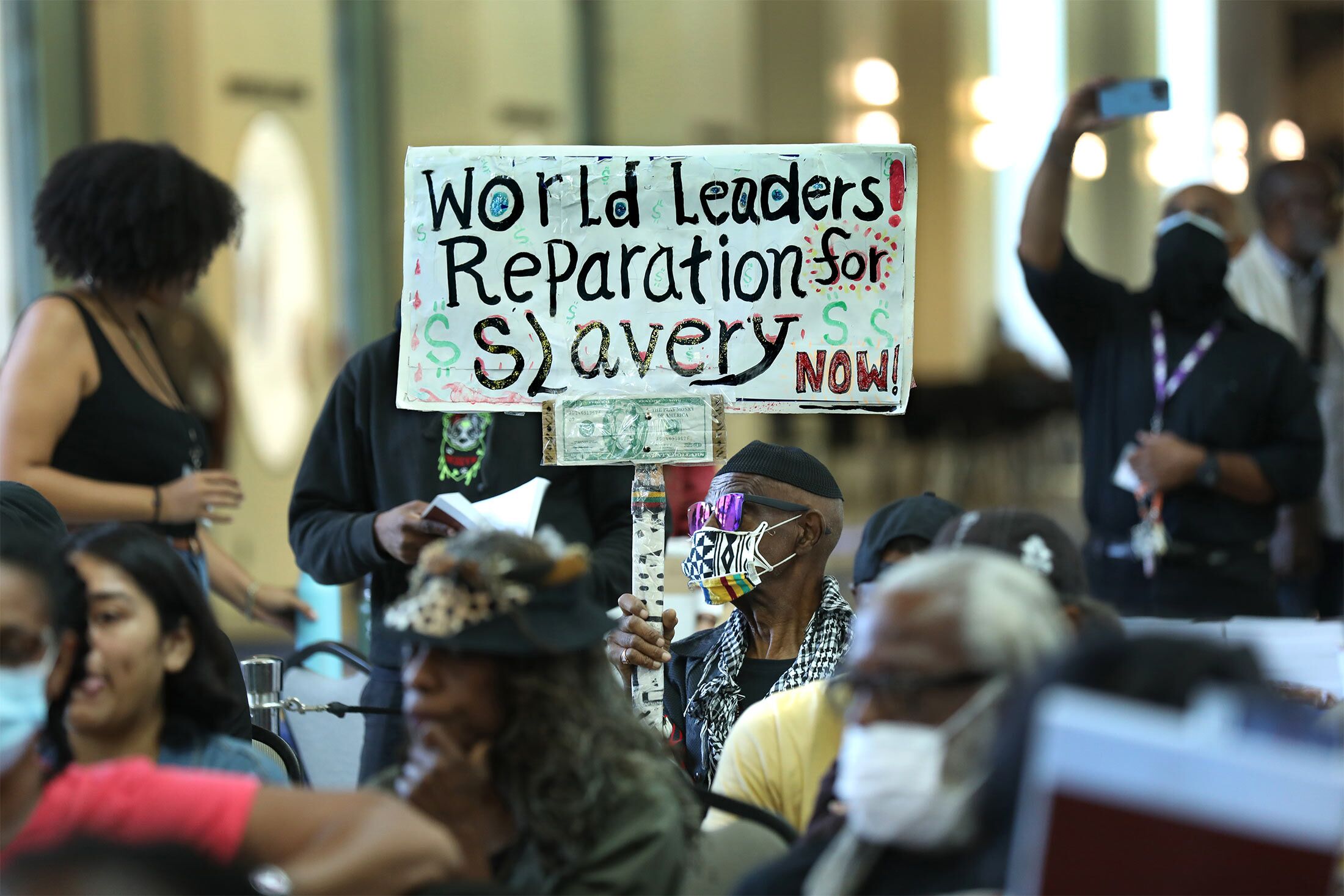(Bloomberg) —
California is moving closer to determining what eligible Black residents are owed for generations of discriminatory practices, a key step toward potentially becoming the largest US jurisdiction to pay out billions of dollars in reparations.
The California Reparations Task Force will meet over the next two days in Sacramento to assess how reparations should be distributed, which could include direct payments and investments in education, health care and homeownership for Black communities. The group is set to deliver its final recommendations to the state legislature by July 1 and it will be up to lawmakers to decide whether to adopt them.
Tackling the issue is a complex task for the group of civil rights leaders, policymakers, economists and scholars appointed by Governor Gavin Newsom in 2020, following the murder of George Floyd. One of the models under consideration suggests the state would owe a total of almost $640 billion to 1.8 million Black Californians with an ancestor enslaved in the US, which works out to roughly $360,000 per person.
California’s task force has yet to say who would pay these sums. After years of budget surpluses, the state’s financial fortunes are turning, with a projected $22.5 billion budget deficit. The technology sector is laying off workers, stock market declines are hurting the incomes of top earners who pay a large share of taxes, and the state already has some of the highest taxes in the nation.
Read More: The Historical Reasons Behind U.S. Racial Wealth Gap
With a federal reparations bill languishing in Congress, how the outcome plays out in the most-populous US state may have implications for other areas that are weighing similar efforts across the country. Evanston, Illinois, in 2021 became the first US city to provide reparations to its Black residents, including giving housing grants, and reparations studies are springing up in places like New York and St. Louis.
“If California can admit its sins and change the narrative, then there is a way forward for states and cities across the nation,” said California Secretary of State Shirley Weber, who wrote the bill creating the task force when she served in the state assembly.
One of the most difficult questions the task force faces is how to define the historical period for measuring harms experienced by Black residents in a state where slavery was never legal. And they’ll need to show how the reparations and policy changes will reduce the persistent racial wealth gap, which has left US White families with roughly six times more wealth than Black families.
Read More: How Reparations Fit Into New Push for Racial Justice
A prevailing method is to use the racial wealth gap as an indicator of the losses that Black descendants of enslaved people suffered, according to an interim report by a working group for the task force. Using that model, a conservative estimate would be the state owed $636.7 billion.
Another proposed strategy would be to calculate damages related to various injustices, including housing discrimination, mass incarceration, over-policing, health harms, devaluation of businesses, and property seizures.
The chair of California’s panel, Kamilah Moore, earlier this year tweeted a news story recounting proposals to fund reparations that included adding mansion or estate levies or offering tax credits.
Some California cities, including Los Angeles, have started their own reparations task forces outside of the state effort. In San Francisco, one notable proposal involves a $5 million lump-sum payment to each eligible Black resident. In a recent win for repatriation advocates, Los Angeles County returned the deed to a prime Southern California beach front property that had been forcibly taken from a Black couple a century ago. The descendants of the owners have now decided to sell the property back to the county for almost $20 million.
“These local initiatives are extremely important to start a conversation,” said Thomas Craemer, associate professor of Public Policy at the University of Connecticut, who consults with the California task force on economic methodology. “The past is the past. But we can start a conversation about it by making a down payment and then addressing what other injustices happened.”
The issue of reparations has divided public opinion. About three-quarters of Black Americans say the descendants of enslaved people should be repaid in some way, while only 18% percent of White Americans feel the same way, according to a study by the Pew Research Center.
“We don’t have to go back to 1619 or 1863 to find tangible harm,” said Assemblymember Reginald Jones-Sawyer Sr., a member of the task force, referring to the years in which enslaved people arrived and the Emancipation Proclamation was passed. “The legacies of slavery and discrimination continue in denying access to buying homes, to quality education, to healthcare. Those are all things that economists can measure.”
–With assistance from Linly Lin and Siraj Datoo.
© 2023 Bloomberg L.P.






